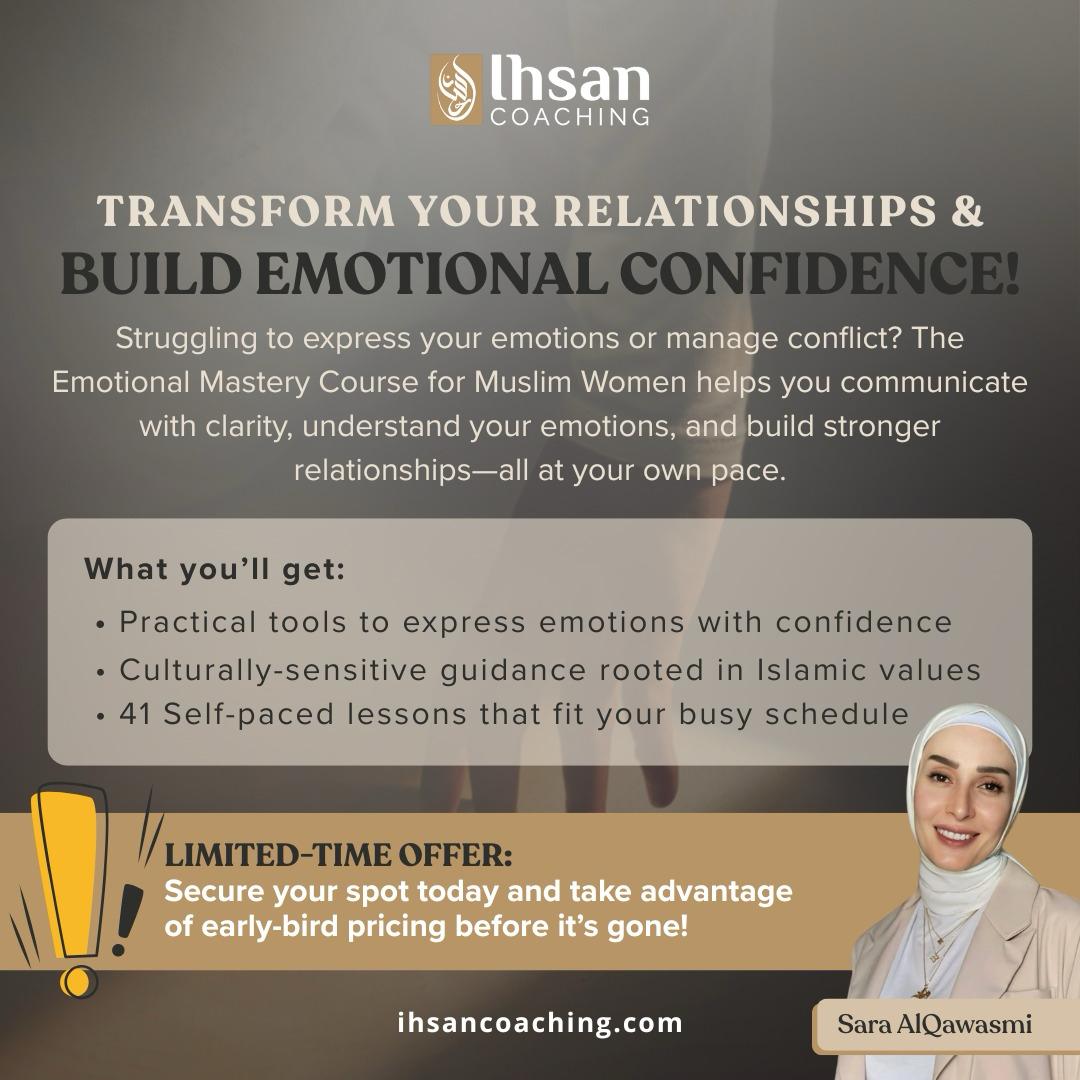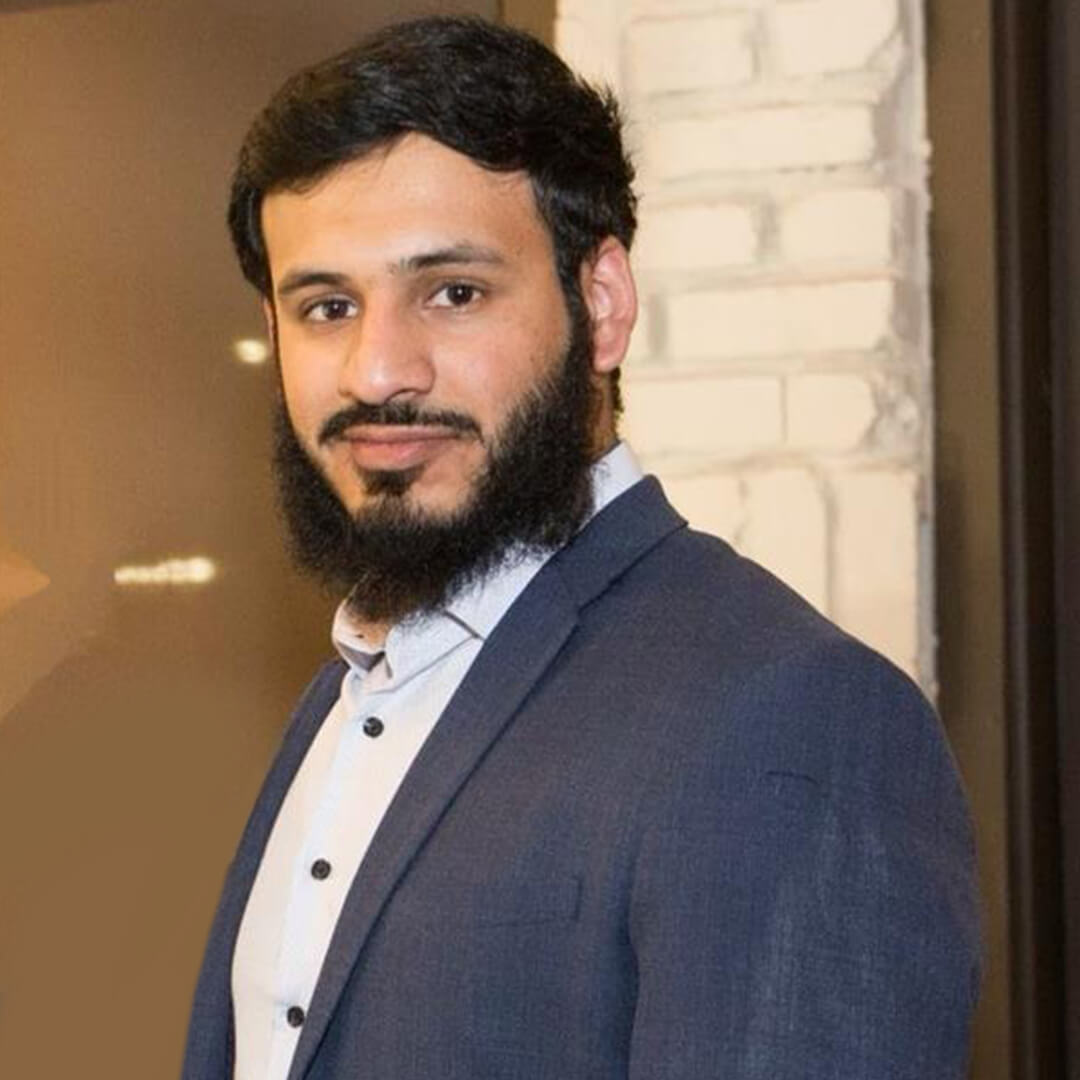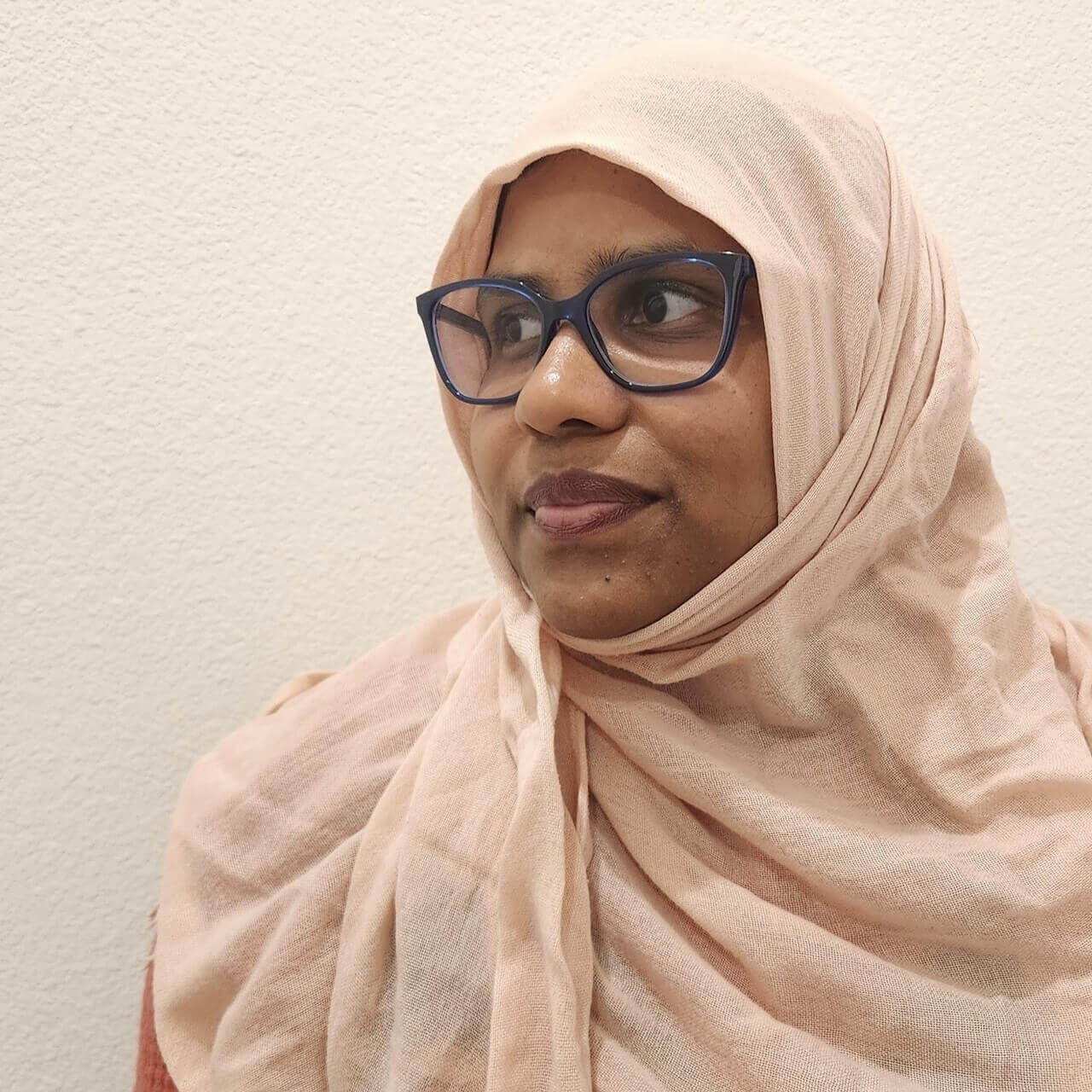Divorce is never an easy step, especially when children are involved. While the end of a marriage signifies a significant life change, it doesn’t mean the relationship with your ex-spouse is over, especially if you’re co-parenting. Effective communication post-divorce is crucial for your children’s well-being and peace of mind. Here’s how to have a respectful and cooperative relationship with your ex-spouse that aligns with Islamic principles.
The Need for Effective Communication with Your Ex-spouse
When children are involved, the dynamics of your relationship with your ex-spouse need to shift to a co-parenting team. This transition is essential for maintaining your children’s stable and nurturing environment. Even though the marriage has ended, the need for mutual respect and cooperation remains. Demonstrating respectful behavior towards each other sets a positive example for your children, showing them that their parents can work together harmoniously.
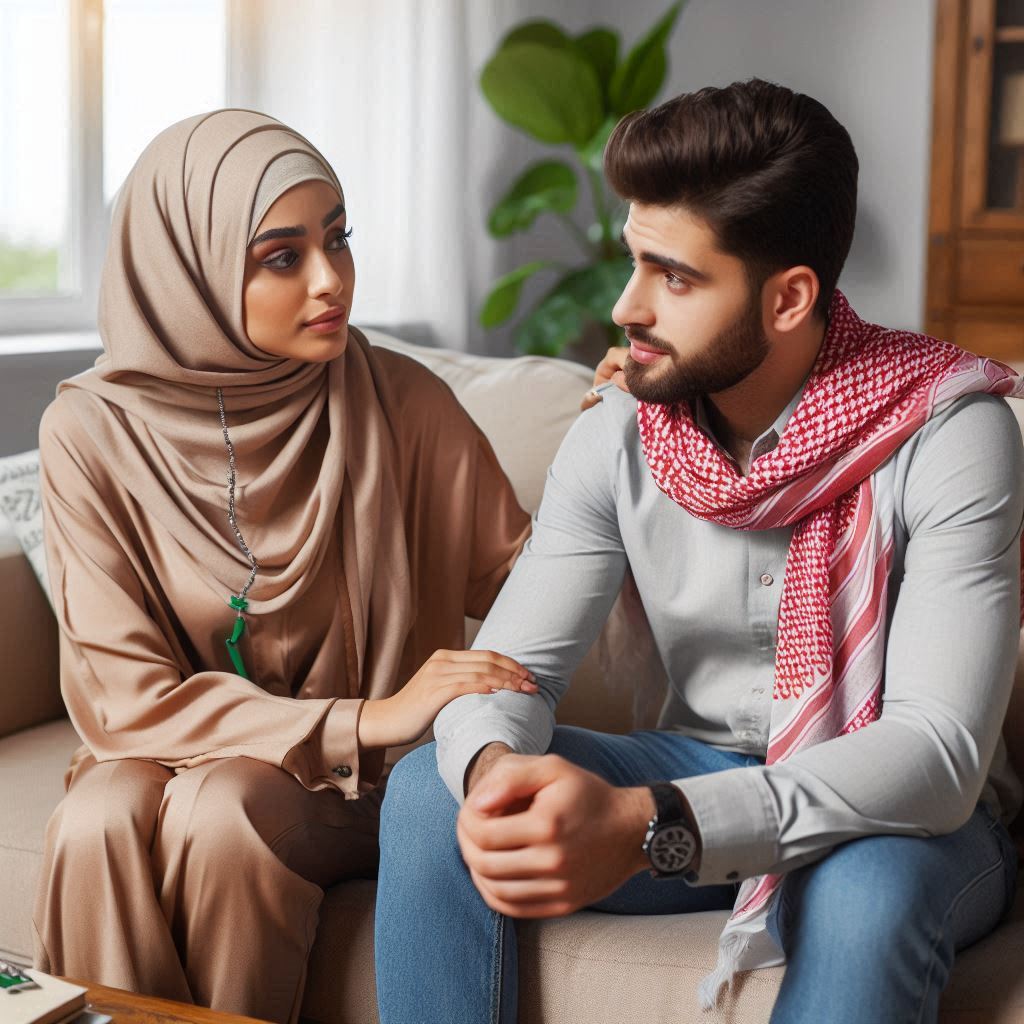
Practical Steps to Improve Communication
➡️ Acceptance and Healing
The first step is to accept the divorce and work on healing individually. Holding onto the past hurts only hampers progress. Embrace the reality of the situation and focus on moving forward. Healing looks different for everyone, so take the time you need.
➡️ Respect and Kindness
Never disrespect your ex-spouse in front of or behind your children. Children model their behavior based on what they observe from their parents. Even in challenging times, demonstrating respect teaches them valuable lessons about kindness and forgiveness.
➡️ Remember the Good
Reflecting on the positive aspects or sides of your past relationship can enable a cooperative co-parenting environment. Remember the good times and the qualities that initially brought you together. This perspective can aid in rebuilding a cordial relationship.
➡️ Share Your Child’s Life
Keep your ex-spouse informed about your children’s lives. Sharing significant moments and achievements helps maintain their connection with the children. This practice ensures that both parents are engaged and supportive, enhancing the children’s sense of security and belonging.
➡️ Communicate Your Decisions
Mothers often conduct extensive research on matters concerning their children’s development. Sharing this information and the reasoning behind significant decisions can help the other parent feel involved and respected, encouraging a collaborative environment.
➡️ Avoid Using Children as Pawns
Ensure your conflicts do not interfere with your children’s relationship with their other parents. Flexibility and an open visitation policy help maintain healthy parent-child relationships free from parental disagreements.
➡️ Reflect and Rebuild
Wherever you are on your divorce journey, understand that the difficulties you face now are not permanent. Focus on controlling your interactions and behaviors and strive to provide your children with a loving and secure environment. Maintaining civil and healthy relationships with your ex-spouse honors you and your children and helps them upbringing their emotional well-being.
How the Quran Provides Guidance for Dealing with an Ex-Spouse After Divorce
The Quran, the holy book of Islam, offers profound guidance and wisdom on various aspects of life, including how to handle relationships after divorce. It emphasizes respect, fairness, and compassion principles, crucial for maintaining a healthy and constructive relationship with an ex-spouse, especially when children are involved. Here are critical Quranic teachings that can help individuals navigate the post-divorce relationship with their ex-spouse:
Respectful Attitude with Ex-Spouse
The Quran advocates for treating everyone with respect and kindness, even after the end of a marriage. Surah Al-Baqarah (2:231) states:
“And when you divorce women, and they fulfill their terms, either keep them in a good manner or release them in a good manner. And do not keep them, intending harm, to transgress.”
وَإِذَا طَلَّقْتُمُ ٱلنِّسَآءَ فَبَلَغْنَ أَجَلَهُنَّ فَأَمْسِكُوهُنَّ بِمَعْرُوفٍ أَوْ سَرِّحُوهُنَّ بِمَعْرُوفٍۢ ۚ وَلَا تُمْسِكُوهُنَّ ضِرَارًۢا لِّتَعْتَدُوا۟
This verse highlights the importance of parting ways amicably and treating each other with dignity, which is essential for a positive post-divorce relationship.
Justice and Fairness
The Quran emphasizes justice and fairness in all dealings. In Surah An-Nisa (4:35), it says:
“If you fear a breach between the two, appoint an arbiter from his people and an arbiter from her people. If they both desire reconciliation, Allah will cause it between them.”
وَإِنْ خِفْتُمْ شِقَاقَ بَيْنِهِمَا فَٱبْعَثُوا۟ حَكَمًۭا مِّنْ أَهْلِهِۦ وَحَكَمًۭا مِّنْ أَهْلِهَآ ۚ إِن يُرِيدَآ إِصْلَـٰحًۭا يُوَفِّقِ ٱللَّهُ بَيْنَهُمَآ
This guidance underscores the importance of fairness and mediation in resolving disputes amicably. Striving for justice ensures that both parties are treated fairly, which is crucial for maintaining a respectful relationship.
Protecting the Well-being of Children
The Quran strongly emphasizes the well-being of children and their rights. Surah Al-Baqarah (2:233) states:
“Mothers may breastfeed their children for two years for whoever wishes to complete the nursing [period]. Upon the father, their provision and clothing are according to what is acceptable. No person is charged with more than his capacity. No mother should be harmed through her child, and no father through his child.”
وَٱلْوَٰلِدَٰتُ يُرْضِعْنَ أَوْلَـٰدَهُنَّ حَوْلَيْنِ كَامِلَيْنِ ۖ لِمَنْ أَرَادَ أَن يُتِمَّ ٱلرَّضَاعَةَ ۚ وَعَلَى ٱلْمَوْلُودِ لَهُۥ رِزْقُهُنَّ وَكِسْوَتُهُنَّ بِٱلْمَعْرُوفِ ۚ لَا تُكَلَّفُ نَفْسٌ إِلَّا وُسْعَهَا ۚ لَا تُضَآرَّ وَٰلِدَةٌۭ بِوَلَدِهَا وَلَا مَوْلُودٌۢ لَّهُۥ بِوَلَدِهِۦ
This verse highlights both parents’ responsibility to ensure their children’s well-being. It encourages cooperation and mutual support, which is vital for effective co-parenting after divorce.
Forgiveness and Patience
Forgiveness and patience are vital virtues promoted by the Quran. Surah Ash-Shura (42:43) advises:
“And whoever is patient and forgives – indeed, that is of the matters [worthy] of resolve.”
وَلَمَن صَبَرَ وَغَفَرَ إِنَّ ذَٰلِكَ لَمِنْ عَزْمِ ٱلْأُمُورِ
Patience and forgiveness can help overcome the bitterness and emotional hurt often accompanying divorce. This Attitude helps to have a healthier post-divorce relationship and sets a positive example for children.
Eliminate Negative Behavior
The Quran encourages maintaining good manners and behavior. Surah Al-Hujurat (49:11-12) advises against mocking, slandering, and backbiting others. These teachings are crucial for ensuring that interactions with an ex-spouse remain respectful and free from negative behaviors that can harm the children and parents.
“O you who have believed, let not a people ridicule [another] people; perhaps they may be better than them. Do not insult or call each other by [offensive] nicknames. Wretched is the name of disobedience after [one’s] faith. And whoever does not repent – then it is the wrongdoers.
يَـٰٓأَيُّهَا ٱلَّذِينَ ءَامَنُوا۟ لَا يَسْخَرْ قَوْمٌۭ مِّن قَوْمٍ عَسَىٰٓ أَن يَكُونُوا۟ خَيْرًۭا مِّنْهُمْ وَلَا نِسَآءٌۭ مِّن نِّسَآءٍ عَسَىٰٓ أَن يَكُنَّ خَيْرًۭا مِّنْهُنَّ ۖ وَلَا تَلْمِزُوٓا۟ أَنفُسَكُمْ وَلَا تَنَابَزُوا۟ بِٱلْأَلْقَـٰبِ ۖ بِئْسَ ٱلِٱسْمُ ٱلْفُسُوقُ بَعْدَ ٱلْإِيمَـٰنِ ۚ وَمَن لَّمْ يَتُبْ فَأُو۟لَـٰٓئِكَ هُمُ ٱلظَّـٰلِمُونَ
Implementing Quranic Guidance with Ihsan Coaching
Ihsan Coaching integrates these Quranic principles into post-divorce coaching programs to help individuals navigate their new circumstances with faith and dignity. Our coaching focuses on the following:
- Encouraging respectful and kind communication between ex-spouses.
- Promoting fairness and justice in co-parenting arrangements.
- Supporting the children’s spiritual, emotional, and physical well-being.
- Teaching patience, forgiveness, and positive behavior.
- Providing practical strategies to implement Quranic teachings in daily life.
Post-Divorce Coaching
Ihsan Coaching offers specialized post-divorce coaching to support you through this transition. Our services are designed to help you rebuild your life, improve communication with your ex-spouse, and create a nurturing environment for your children.
Invest in your well-being and children’s future by seeking support from Ihsan Coaching. Together, we can turn this problematic chapter into an opportunity for growth and harmony. Contact us today to learn more about our post-divorce coaching and religious consultation services and start your journey towards a better tomorrow.
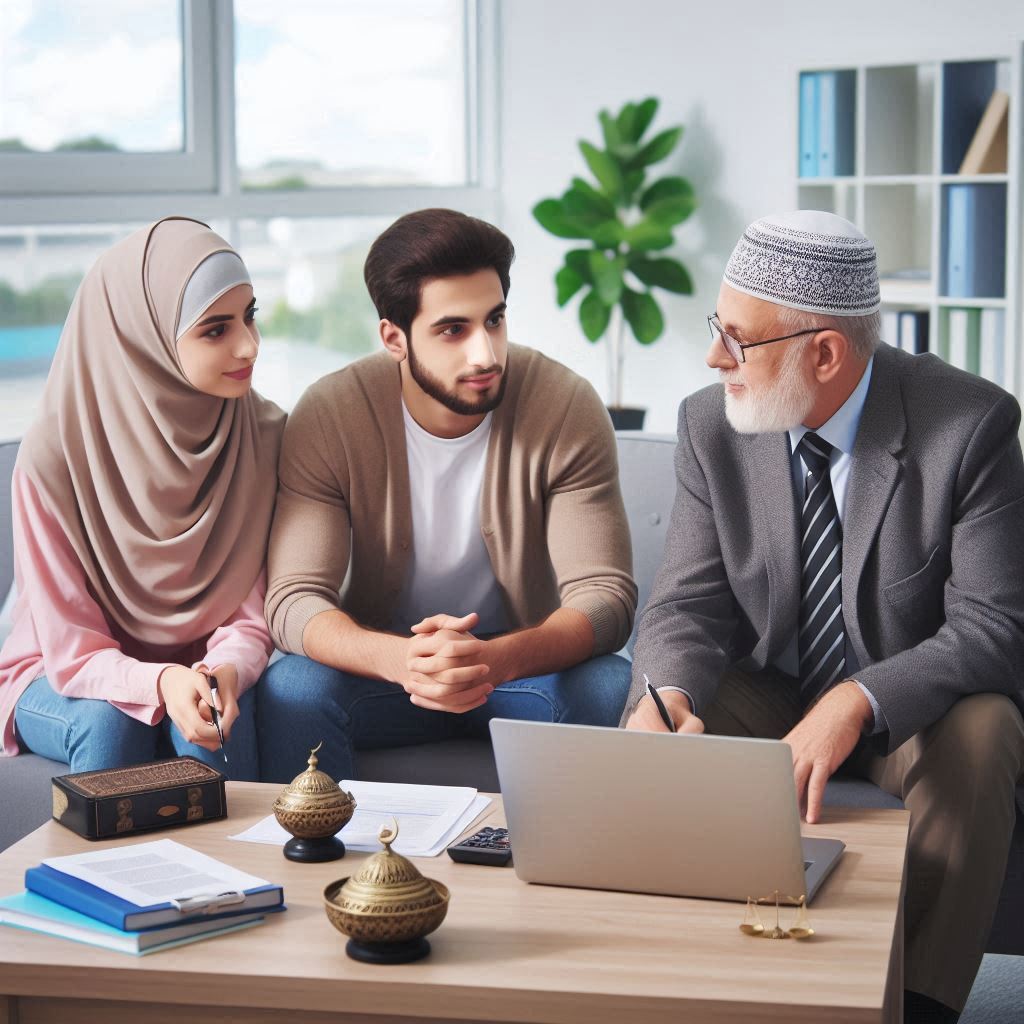
FAQs About Post-Divorce Coaching with Ihsan Coaching
What is post-divorce coaching?
Post-divorce coaching is a specialized service designed to help people navigate the emotional, practical, and social challenges that arise after a divorce. It focuses on rebuilding one’s life, setting new goals, and improving communication with one’s ex-spouse, especially when children are involved.
How does post-divorce coaching differ from therapy?
While therapy often focuses on healing past emotional wounds and understanding the psychological impacts of divorce, post-divorce coaching is more action oriented. It concentrates on the present and future, helping you create and achieve personal goals, develop effective co-parenting strategies, and confidently move forward.
What are the benefits of post-divorce coaching?
Benefits include improved communication with your ex-spouse, better co-parenting skills, emotional support during the transition, practical advice on handling post-divorce challenges, and personal growth and goal-setting guidance.
Can post-divorce coaching help improve my relationship with my ex-spouse?
Yes, post-divorce coaching can help you develop effective communication strategies, resolve conflicts amicably, and foster a respectful co-parenting relationship. This will benefit you and your ex-spouse and create a stable and positive environment or atmosphere for your children.
How can I find the right post-divorce coach for me?
Look for a coach with experience with post-divorce issues who understands the complexities of co-parenting and can provide personalized strategies to meet your needs. Ihsan Coaching offers experienced coaches who specialize in post-divorce transitions.
How long does post-divorce coaching typically last?
The duration of post-divorce coaching varies depending on individual needs and goals. Sometimes, people may benefit from a few sessions, while others might require ongoing support over several months.
Is post-divorce coaching suitable for both men and women?
Absolutely. It benefits anyone going through a divorce, regardless of gender. Both men and women can gain valuable insights and support for post-divorce life.
What topics are covered in post-divorce coaching sessions?
Sessions can cover many topics, including effective communication strategies, co-parenting techniques, managing emotions, setting new life goals, practical advice for rebuilding your life, and creating a supportive environment for your children.
How can post-divorce coaching help me with co-parenting?
Post-divorce coaching provides tools and strategies to improve communication with your ex-spouse, establish consistent parenting routines, resolve conflicts, and create a cooperative co-parenting relationship. This helps ensure that your children feel secure and supported by both parents.
What should I expect during my first post-divorce coaching session?
During your first session, your coach will discuss your current situation, challenges, and goals. This initial conversation helps the coach understand and develop a customized plan to support your journey. You’ll also be able to ask questions and outline what you hope to achieve through coaching.
How do I get started with Ihsan Coaching’s post-divorce coaching?
Contact us directly or through our website. We will set up an initial consultation session to discuss your needs and how our coaching services can best support you through this transition.

